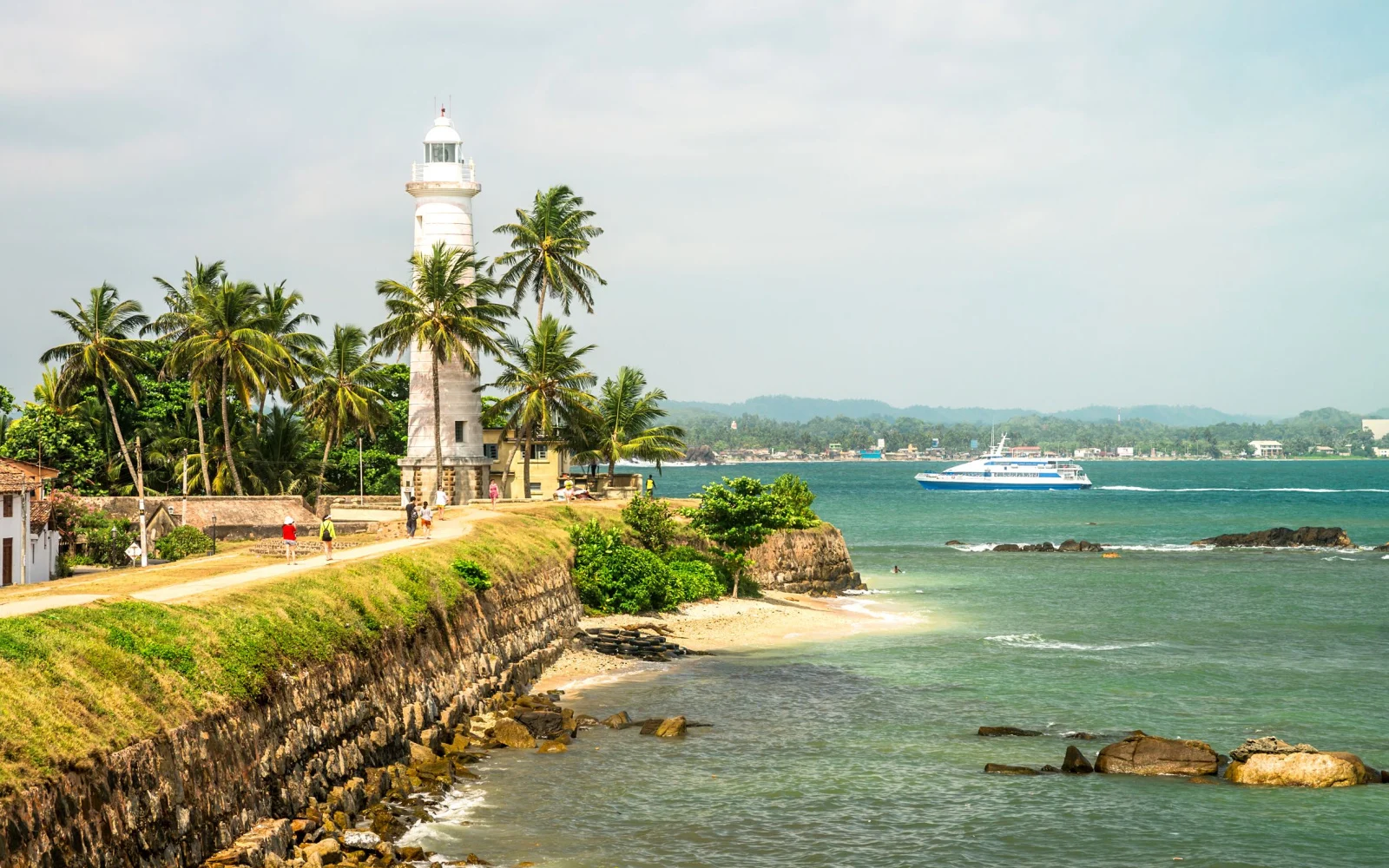Sri Lanka, the small island country off of the Indian coast, is a great destination for people looking to check out beautiful nature, delicious food, and thousands of years of history.
In 2019, 4.6 million people visited Sri Lanka. Visitors to Sri Lanka certainly have plenty to see. Explore beautiful nature such as Udawalawe National Park which is home to many elephants, the tea fields of the Hill Country, or the beaches in Arugam Bay.
Check out historical sites such as the fifth century rock-top fortress of Sigiriya, the ancient Buddhist ruins of Anuradhapura, or the last royal capital of Kandy.
The island’s multicultural heritage is on display in the architecture, festivals, and of course, the delicious food.
There are so many reasons to visit Sri Lanka that you might be tempted to book your tickets to visit immediately. However, before visiting any new place, it’s a good idea to prepare for what you might meet on the ground.
But don’t worry — our travel experts created this comprehensive guide to help you navigate Sri Lanka’s most common safety concerns to help you have a smooth trip. Let us be your guide!
Is Sri Lanka Safe to Visit in 2024?
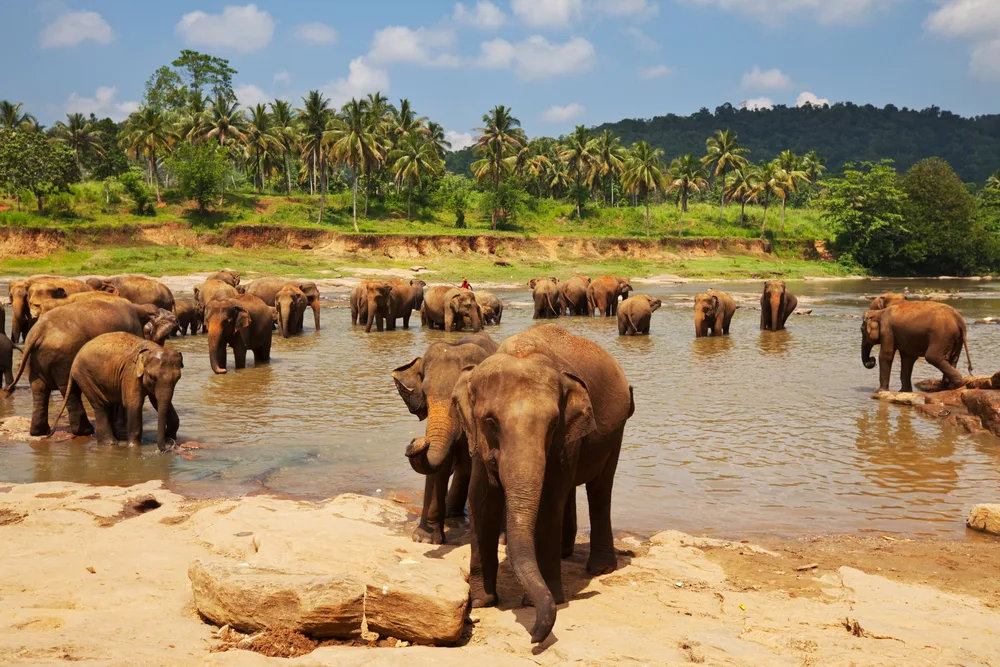
Galyna Andrushko/Shutterstock
Travel to Sri Lanka now is mostly safe as earlier unrest has calmed down. Visitors are most likely to encounter petty crimes such as pickpocketing, but more violent crimes have occurred in the past.
It is good to have some knowledge of the political situation before you go. The reason many tourists are wary about visiting Sri Lanka now is due to the economic crisis and civil unrest that gripped the country in 2022.
This unrest is one of the primary concerns most countries mention in their travel advisories for Sri Lanka.
For example, the United States lists civil unrest as one of its reasons for issuing a Level Two travel advisory, along with persistent shortages and terrorism.
Protests rocked Sri Lanka from April to August 2022 in response to economic catastrophe, shortages of essential goods, and government corruption.
Government mismanagement in recent years led to the economic crisis by crippling Sri Lanka’s international trade, making the country dependent on imports, and even causing widespread crop failures.
By mid-2022, Sri Lankans had had enough and took to the streets to call for the president’s resignation, even storming the lavish presidential palace. However, the protests were repressed and many protest leaders face charges from the government.
As of early 2023, there are few protests in Sri Lanka (while this is good news for international visitors, it is not so good news for locals as the economic situation has not improved much).
Love Sri Lanka, a coalition from the local tourism sector, says that the country is safe to visit now as unrest has calmed down. If you do see a protest or people gathering, get out of the area immediately.
Government crackdowns are not friendly to foreigners who join in protests. Although some of the worst of the economic freefall was limited, Sri Lanka is still experiencing plenty of problems.
The UK government warns travelers to expect shortages of essential goods such as fuel and medicine. Your travel plans may need to change at the last minute as fuel rationing affects transport.
The continuing economic downturn and societal dissolution in Sri Lanka means that there is some crime. Common concerns include:
- Pickpocketing
- Bag snatching
- Other forms of petty theft
- Scams
- Verbal harassment
- Assault
- Terrorism
Most violent incidents in Sri Lanka do not affect tourists, but petty crime directed against foreigners is on the rise. A final piece of local context you should know before you visit Sri Lanka is the history of the civil war.
The Sri Lankan Civil War occurred from 1983 to 2009 between the minority Tamil separatists and the majority Sinhalese state.
Although a ceasefire was signed, the scars of war are still visible as community tensions are still high, thousands of people are still missing, some parts of the country still have landmines, and some sitting government officials have been accused of war crimes.
The consequences of the Sri Lankan Civil War primarily affect locals, not tourists.
However, you should still be aware of this event as some regions are still affected by this war through heightened security and landmines. You also don’t want to ask local friends any uncomfortable questions.
Crime in Sri Lanka
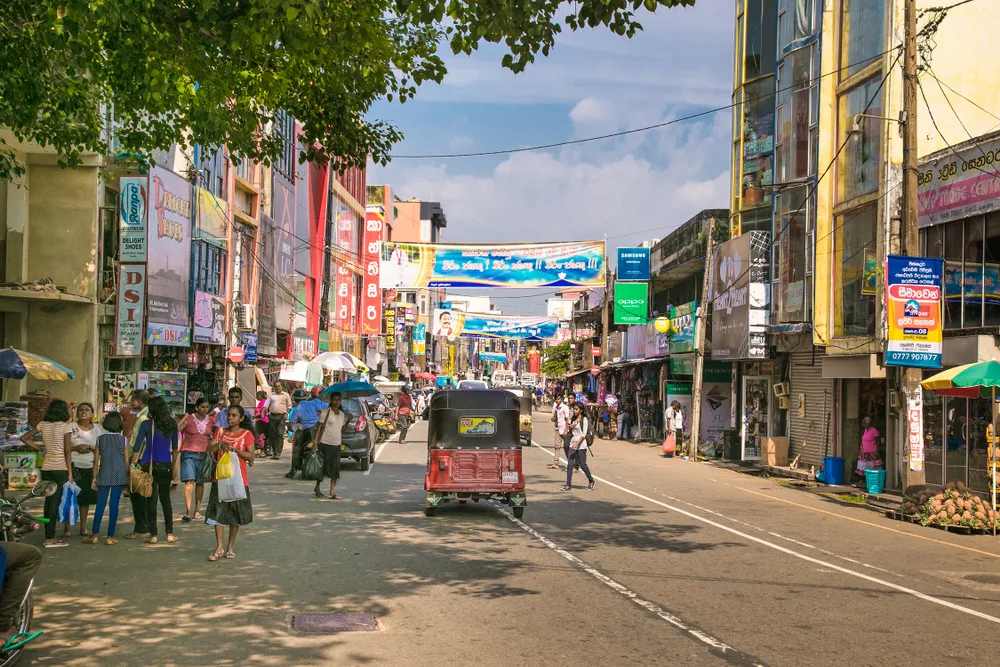
GALE, SRI LANKA-JAN 6, 2107: Local people in the street of Galle city on Jan 6, 2017. Sri Lanka. Galle is the largest city and port in the south of Sri Lanka the capital of the southern province/Aleksandar Todorovic/Shutterstock
Crime is one of the primary concerns for people traveling to Sri Lanka. The country experiences a moderately high crime rate, one that is rising due to the economic crisis.
It’s a good idea to stay alert to crime when you are in Sri Lanka. The rate of violent crime in Sri Lanka is not very high. For example, the homicide rate is 3.48 incidents per 100,000 people, which is lower than in the United States.
Rates of other violent crimes are also moderately low. When they do occur, violent crimes rarely affect tourists as they mostly target locals.
The overall crime rate is much higher than the violent crime rate alone. According to Numbeo, Sri Lanka scores a 40.89 out of 100 on the crime index, which is a moderate value.
Respondents were mostly concerned with property crimes such as break-ins, theft from vehicles, theft, and muggings. Other petty crimes such as verbal harassment and drug abuse were also reported at moderate levels.
By far the most concerning crime according to locals is corruption and bribery. Unfortunately, Sri Lanka’s paralyzing economic crisis had an effect on the crime rate as well. In 2022, crime in the country rose drastically.
According to local news, there were nearly 200 murders and 1,000 robberies in the first four months of 2022 alone. The local police also reported increases in home break-ins, farm equipment theft, and gun violence.
Women’s shelters reported a drastic increase in domestic violence. A rise in crime often accompanies an economic downturn as people are pushed towards more desperate actions due to poor living conditions.
The breakdown in law and order caused by poor societal conditions also led to an increase in gun-related violence that was connected to organized crime, specifically drug traffickers.
When criminals see that authorities lack resources, they feel more emboldened to break the law.
As the political situation in Sri Lanka calmed down since the end of 2022, the crime rate has also steadied somewhat. However, the rate of petty theft is still high as more and more people are in dire economic straits.
Petty Theft
The crime you are most likely to encounter in Sri Lanka is petty theft. The UK government warns its citizens that there have been increases in low level crime in recent years in Sri Lanka, driven directly by the widespread shortages.
Common petty crimes in Sri Lanka include pickpocketing, bag snatching, hotel room break-ins, and snatch-and-grab thefts from the backs of motorcycles.
Thieves often target foreigners because they perceive that they will be more lucrative targets than locals affected by the economic crisis.
The Canadian government lists some common hotspots for petty theft, including public transportation, hotels and guesthouses frequented by foreigners, markets, and popular tourist destinations where there are a lot of crowds.
You will need to be on your guard to make sure that you leave Sri Lanka with all of your valuables intact.
Invest in a secure method to hold on to your valuables, such as a money belt, fanny pack, or cross-body bag. When walking near busy roads, keep your bag on the opposite side of your body from traffic to prevent thefts from motorcycles.
Credit card and ATM fraud are both common in Sri Lanka. Pay in cash except at trusted locations (most places in rural Sri Lanka only accept cash anyway). Never let anyone take your card out of your sight.
Terrorism
Terrorism is a serious concern for travelers in Sri Lanka. In 2019, a series of bombs went off in Sri Lanka on Easter Sunday, targeting the country’s minority Christian community.
An estimated 290 people were killed in eight separate bomb attacks in churches and hotels.
A group of ISIS-affiliated local militants were blamed for the attack. However, several years after the bombings, local Christians protested against the slow, inefficient course of justice.
The 2019 Easter Sunday attacks were the worst in Sri Lanka’s history, but according to the New Zealand government’s travel advisory, there is an ongoing threat of terrorism.
Many terrorist groups still pose a threat and have intentions of targeting foreigners. The New Zealand government is not the only one to warn against terrorism in its travel advisory.
The Australian government mentions it as well, mentioning the risk to foreigners. Common targets are crowded areas, religious festivals and sites, government buildings, and places popular with foreigners.
If you are in a crowd, stay alert to potential problems such as people acting suspiciously. Always have an escape route in mind. You may want to avoid popular festivals to minimize your risk altogether.
The good news is that since 2019, the Sri Lankan government has drastically stepped up its anti-terrorism measures. Have your ID on you at all times as regular security checks are common as you move around the country.
Budget extra times for security checks at sensitive locations such as the airport. The government can announce a curfew at any time, so be prepared and follow local news.
Avoiding Bad Areas
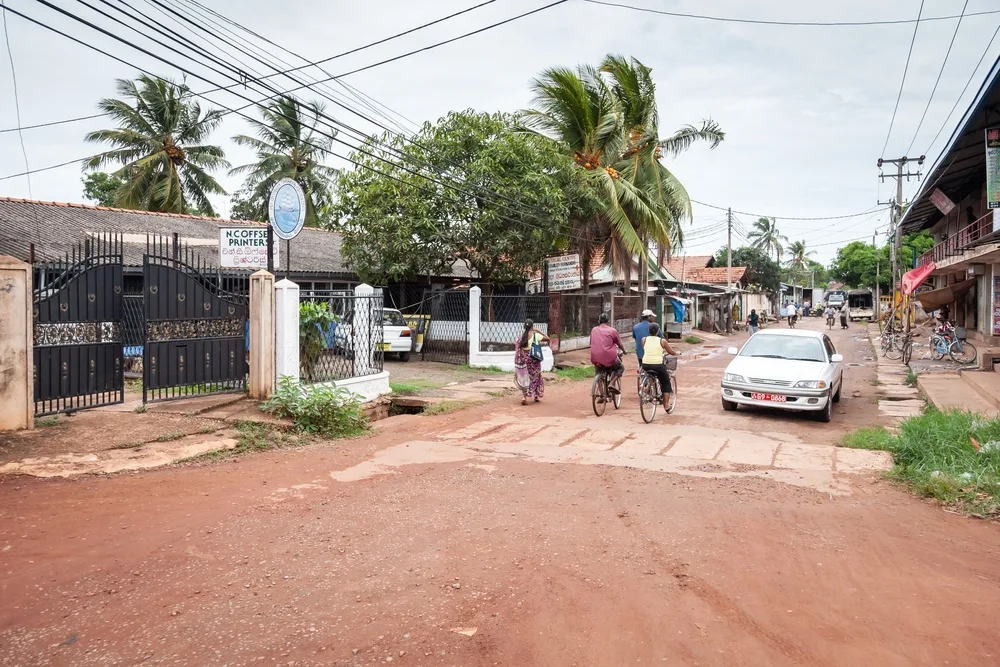
Negombo, Sri Lanka – September 29, 2009: People on the main road in the tourist area close to the fish market/Fotopogledi/Shutterstock
There are certain parts of Sri Lanka that are best to avoid. Avoid walking in rural areas in the Northern and Eastern Provinces as there are still lots of unexploded landmines from the civil war.
The city of Jaffna in the north has a bad reputation as it was the seat of the Tamil insurgency. Many people come to Sri Lanka for the beaches but avoid walking on the beach late at night due to the risk of violent crime.
Beach towns such as Negombo and Hikkaduwa are dangerous after dark, especially for women. In Colombo, most crime-ridden neighborhoods are located away from the center of the city. Avoid dangerous suburbs such as Nugegoda.
Things to Consider
Here are a few additional safety tips to help you stay safe when visiting Sri Lanka:
- Women need to take additional precautions. There have been cases of women getting harassed and assaulted in the past. Never accept food or drinks from strangers or leave your drinks unattended. Avoid traveling at night alone. Book activities through reputable companies.
- Follow local news. Communal violence can erupt at any moment, and you don’t want to get caught in the middle unawares. Local news can also update you about any checkpoints.
- Expect shortages. Shortages of important goods such as fuel, medicine, imported food, and even electrical power affect foreigners. High-end hotels and shops catering to foreigners are usually well-stocked, but you will probably feel the pinch at some point.
- Do not use drugs. Penalties for drug usage and trafficking are severe, even reaching the death penalty.
Frequently Asked Questions
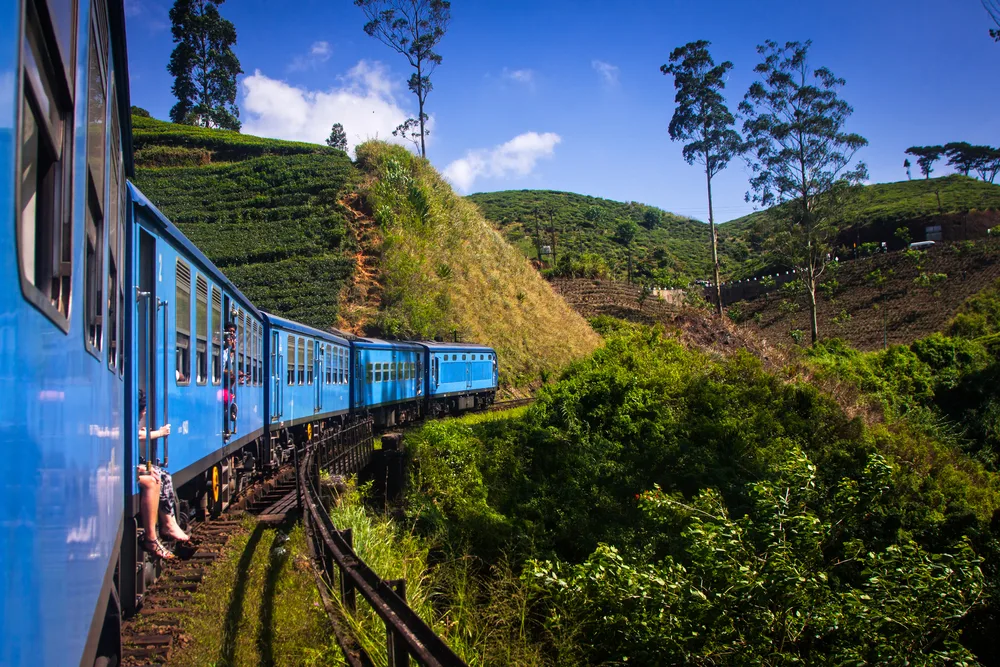
Melinda Nagy/Shutterstock
Here are a few common questions that you might want to know before visiting Sri Lanka:
Are foreigners safe in Sri Lanka?
Yes, foreigners are mostly safe in Sri Lanka. Violent crimes against foreigners are practically unheard of. Foreigners might experience petty theft and verbal harassment, but violent crimes are rare.
Is Sri Lanka affordable or expensive?
Sri Lanka is an affordable travel destination, especially for people earning money abroad due to the favorable exchange rate. Most expenses, from accommodation to food, are budget-friendly.
Is Sri Lanka good for solo female travelers?
While many women travel to Sri Lanka and have a great time, you should exercise some precautions as a solo traveler. Don’t walk around at night and research the tours that you book carefully.
Why do foreigners visit Sri Lanka?
Despite the occasional challenges of visiting Sri Lanka, foreigners visit this country all the time. The beautiful landscapes, including pristine beaches, rich culture, and delicious cuisines are all major draws for foreign visitors.
Is Sri Lanka worth visiting now?
Some travelers may be hesitant about visiting Sri Lanka now due to the recent unrest. However, most protests have petered out, and the country is largely safe to visit now.
So, Is It Safe to Travel to Sri Lanka?
Sri Lanka has been through its fair share of problems, from a decades-long civil war to economic and political turmoil. However, most of these problems do not affect tourists.
As long as you are on your guard against petty theft, you can have a safe, secure time visiting the country. So what are you waiting for — book your trip now and see all that Sri Lanka has to offer!



